10+ Juicer Recipes For Gut Health & Digestion
Juicing with vegetables can be a great way to increase your intake of minerals, nutrients, and fiber! Find Juicer Recipes for Gut Health including information on which ingredients to use and how often to drink juice to help improve digestion.
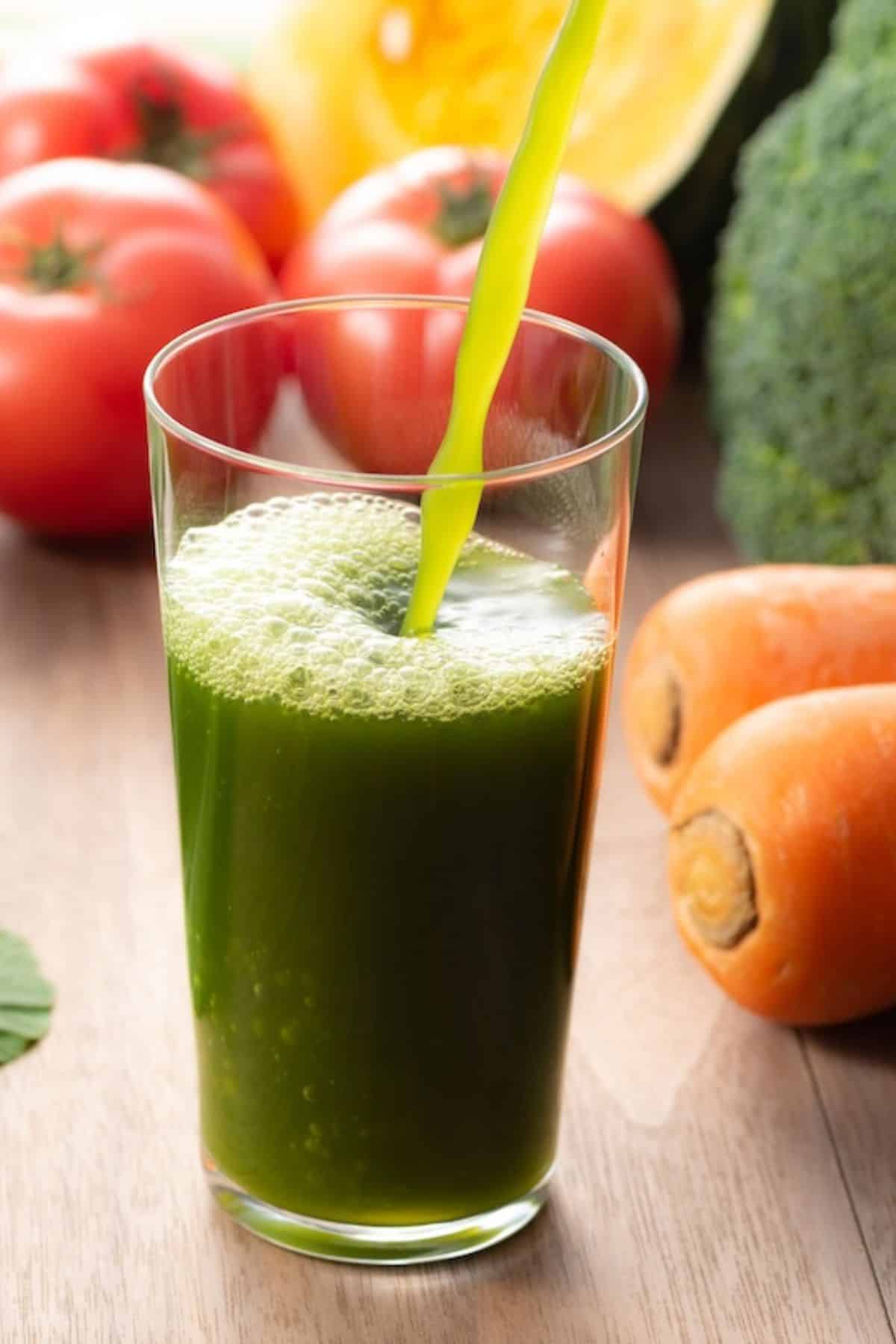
Juices for Gut Health & Digestion
When juicing for gut health benefits, it’s essential to maintain a balance. Too many fruits can increase the sugar content, which may counteract some of the digestion benefits.
It’s generally a good practice to keep your juices vegetable-heavy and use fruits sparingly for sweetness and flavor. You can also try ingredients like a green apple or golden beet that are low in natural sugars but will add sweetness to your glass of juice.
Try any of the juicer recipes for gut health below to get started.
Cabbage Juice Made in Juicer or Blender
Cabbage Juice is a great vegetable juice that can help with tummy troubles including ulcers. This recipe includes apple and ginger to help add natural sweetness and balance the flavors of the juice. Make this juice in a blender or a juicer.
Due to the research around gut health and cabbage juice, this is my number one recommended recipe!
Purple Cabbage Juice Recipe (Juicer or Blender)
This Purple Cabbage Juice recipe offers a refreshing blend of sweet, tangy, and spicy flavors. It’s packed with antioxidants and vitamins, providing a nutritious boost for your immune system and overall health. Learn how to make it in a juicer or a blender.
Pineapple Ginger Juice: Great for Digestion
Pineapple Ginger Juice is a refreshing and invigorating beverage that blends the tropical sweetness of pineapple with the zesty spice of ginger. This vibrant drink not only offers a great balance of flavors but also boasts potential digestive and anti-inflammatory benefits. Learn how to make it in a juicer or a blender!
Celery Cucumber Green Juice Recipe
This Celery Cucumber Green Juice Recipe is full of vitamins and micronutrients, and is perfect for those times when need a hydrating and refreshing drink.
Beet Juice Recipe (Juicer or Blender)
This Sweet Beet Juice recipe is a refreshing drink that is so easy to make and tastes great with no earthy flavor. You only need six ingredients for this healthy recipe. Make this juice in a juicer or a blender!
Green Vegetable Detox Juice Recipe
This Green Vegetable Detox Juice recipe is made with veggies including celery, cucumber, parsley, and leafy greens that are full of antioxidants. This hydrating juice is a great way to start the day!
Easy Celery Juice Recipe (Juicer or Blender)
Here’s an easy Celery Lime Juice recipe that is nourishing, fresh, and delicious, with directions for making it in a juicer or a blender. Celery juice is a nourishing beverage that you can drink in the morning, or at any time of day.
Anti-Bloat Green Juice Recipe (Blender or Juicer)
This green Anti-Bloat Juice uses ingredients known to help reduce symptoms of bloating and water retention. Try this delicious and nutritious green drink using a blender or a juicer.
Pineapple and Cucumber Juice
This Pineapple and Cucumber Juice recipe is a delicious way to get nutrients and minerals like vitamin C and potassium. This juice is also hydrating, so it’s perfect for quenching your thirst on hot summer days. Learn how to make it in a juicer or a blender!
Celery Apple Juice Recipe (Juicer or Blender)
Celery Apple Juice is a great way to get the benefits of celery juice, but with better flavor. This simple recipe has just 3 ingredients and can be made in a juicer or a blender. Try this green juice recipe today!
Gut Health Juice Ingredients
Several ingredients have been recognized for their potential gut health-promoting properties, making them excellent choices for juicing for better digestion.
Here are some of the best simple ingredients that can support your gut health.
- Ginger: Known for its anti-inflammatory properties and ability to ease digestive discomfort. Plus, fresh ginger adds so much amazing flavor to healthy juice recipes.
- Turmeric: Contains curcumin, which has anti-inflammatory effects beneficial for gut health. Juicing turmeric root is one of my favorite ways to use it!
- Green Leafy Vegetables (e.g., Spinach, Kale): High in fiber and antioxidants, supporting the digestive system and providing essential nutrients.
- Beets: Rich in fiber and beneficial compounds that can improve digestion and reduce inflammation. This study on consuming Beet Juice showed its benefits on gut health! See my dedicated article on the amazing benefits of Beetroot Juice.
- Carrots: Provide beta-carotene and fiber, promoting a healthy gut lining and supporting digestion. Carrot juice is one of the best juice recipes you’ll ever make.
- Apples (in moderation): Contain pectin, a soluble fiber that supports good bacteria growth in the gut. See which are the best apples for juicing.
- Cucumbers: High water content helps with hydration and contains enzymes important for digestion.
- Celery: Offers hydration and electrolytes, plus compounds that can support gastric health and reduce inflammation. Homemade celery juice is often consumed on an empty stomach for good digestion.
- Cabbage: Cabbage has a ton of nutrients, plus cabbage juice has been shown to help reduce peptic ulcers! It can help repair the stomach lining and is a delicious juice. See my Purple Cabbage Juice recipe.
- Mint: Known for its soothing properties, it can help ease digestive upsets and promote gut health.
How Juicing Can Improve Gut Health
Vegetable juicing packs a punch of vitamins and antioxidants that help keep the gut healthy by nourishing good bacteria and reducing inflammation.
It’s an easy way to get a variety of nutrients and stay hydrated, both of which are key for a smooth-running digestive system, a strong immune system, and an overall healthy lifestyle.
Potential Benefits
- Boosts Nutrient Intake: Vegetable juices are rich in vitamins and minerals that support the health of the digestive system, helping to maintain a strong gut lining and reduce inflammation.
- Supports Good Bacteria: The nutrients from juiced vegetables can feed beneficial gut bacteria, promoting a balanced and healthy gut microbiome essential for digestion and overall health.
- Improves Hydration: Staying well-hydrated is crucial for digestion, and vegetable juicing adds to your daily fluid intake, helping the digestive system function more efficiently.
- Provides Antioxidants: Antioxidants in vegetables can protect the gut from damage by neutralizing harmful free radicals, contributing to a healthier digestive tract and reducing the risk of diseases including chronic inflammation.
Considerations
- Reduced Fiber Content: Juicing removes most of the fiber from vegetables, which is essential for healthy digestion, promoting bowel regularity, and feeding beneficial gut bacteria. To help combat this, you may also wish to consume gut supportive smoothies (which have more fiber than juice) or simply eat more whole fresh fruits and veggies.
- Potential Sugar Concentration: Juicing primarily fruits can lead to high sugar content in juices, which might negatively affect blood sugar levels and gut health; focusing on vegetables helps mitigate this issue.
- Nutrient Loss: The juicing process can lead to the loss of some nutrients and phytochemicals present in the whole vegetable, potentially reducing the health benefits compared to consuming whole vegetables. To help prevent this, try to consume your juice as quickly as possible after juicing.
- Food Intolerance Risks: For some individuals, certain vegetables might trigger digestive issues or food intolerances when consumed in concentrated juice form, emphasizing the need for moderation and variety. In this case, you can strain your juice even after juicing or start with a small amount, like just a few ounces and then work your way up.
Juicing FAQs
Probably, as juicing can provide a concentrated source of vitamins, minerals, and antioxidants that support the digestive system, reduce inflammation, and nourish beneficial gut bacteria. There is even research supporting juices and a healthier gut microbiome.
Juicing mainly removes fiber from vegetables and fruits, so while it offers many nutrients beneficial for gut health, it doesn’t provide the fiber needed for optimal digestive health. Including whole fruits and vegetables in your diet is crucial for fiber intake. You can get enough fiber from your diet if you include smoothies and eating whole foods in addition to consuming vegetable juices.
Drinking vegetable juice can be a healthy addition to your diet, but moderation is key; one serving a day can complement a diet rich in whole foods, providing additional nutrients without overloading on sugar or missing out on essential fiber.
Don’t Miss These Juicing Resources!
Conclusions
Juicing can be a beneficial addition to a balanced diet, offering a nutrient-rich boost to support gut health through its provision of vitamins, minerals, and antioxidants. The gut health juice recipes provided in this article are a great place to start when you’re looking to start juicing with an emphasis on digestion and digestive health.
Don’t forget to join my newsletter list to get exclusive clean eating recipes and tips. The newsletter is 100% free with no spam; unsubscribe anytime.
About the Author: Carrie Forrest has a master’s degree in public health with a specialty in nutrition and is a certified holistic nutritionist. She is a top wellness and food blogger with over 5 million annual visitors to her site. Carrie has an incredible story of recovery from chronic illness and is passionate about helping other women transform their health. Send her a message through her contact form.
Note: this post is for informational purposes only and is not intended as medical advice. Please consult your healthcare provider for recommendations related to your individual situation.



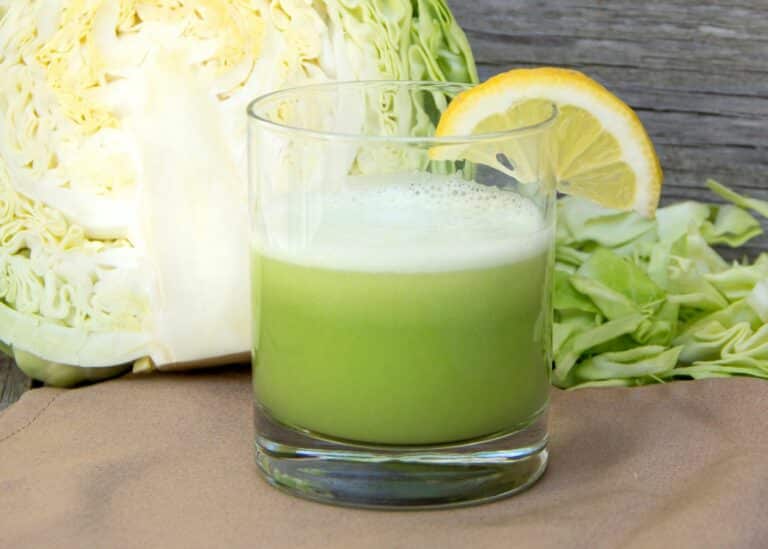

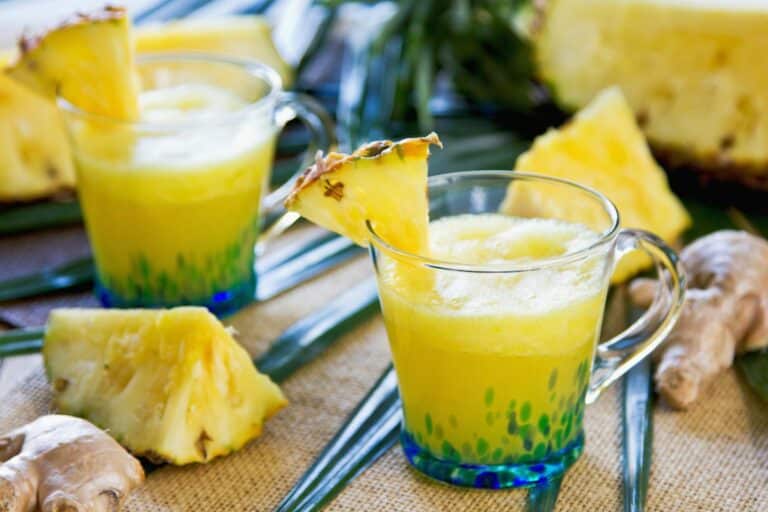
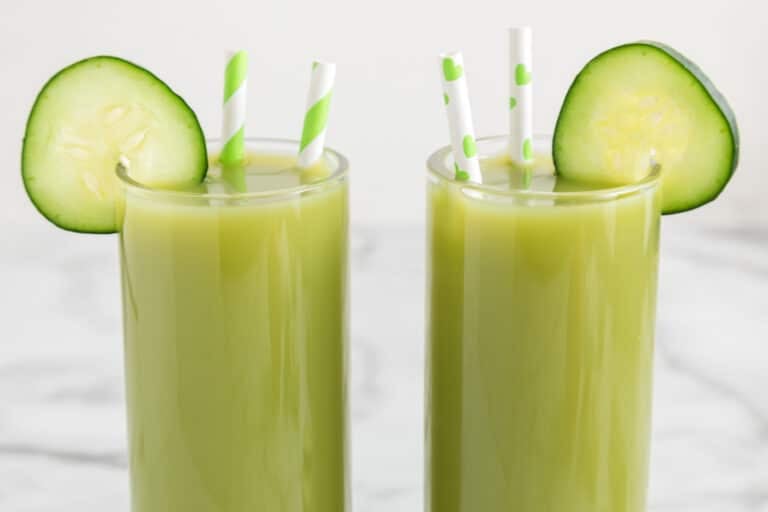
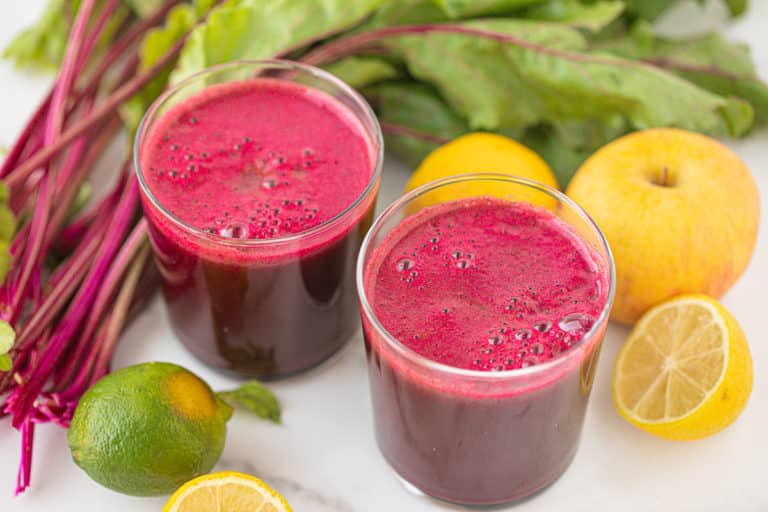
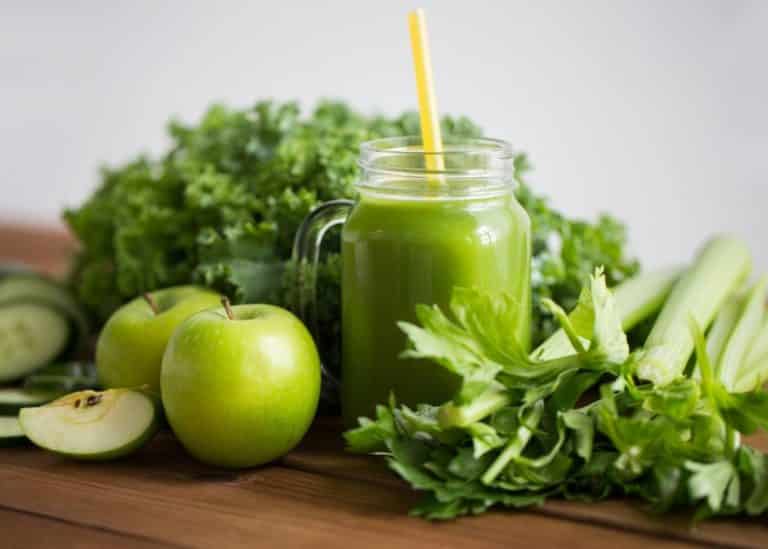
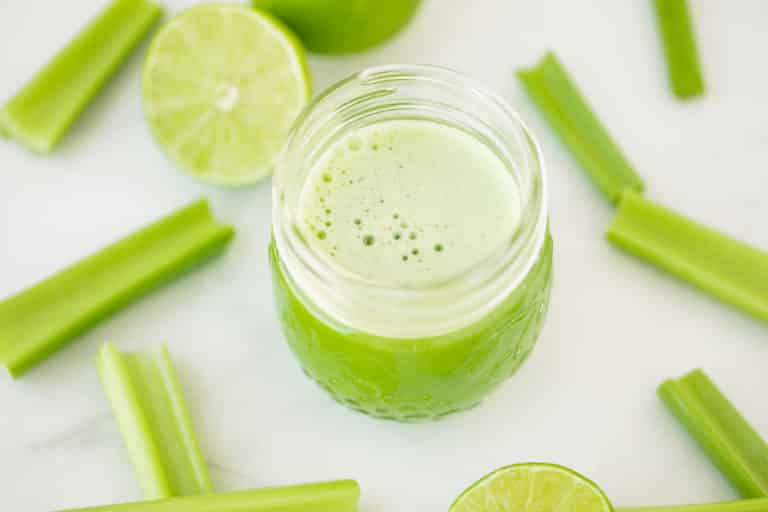
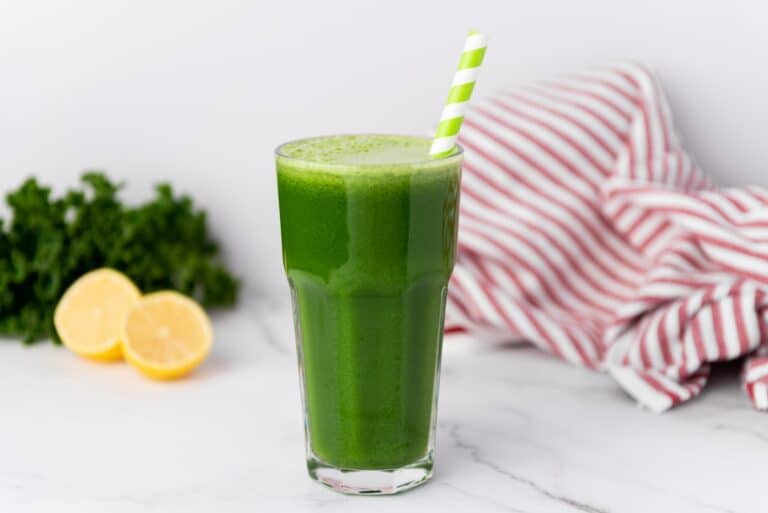
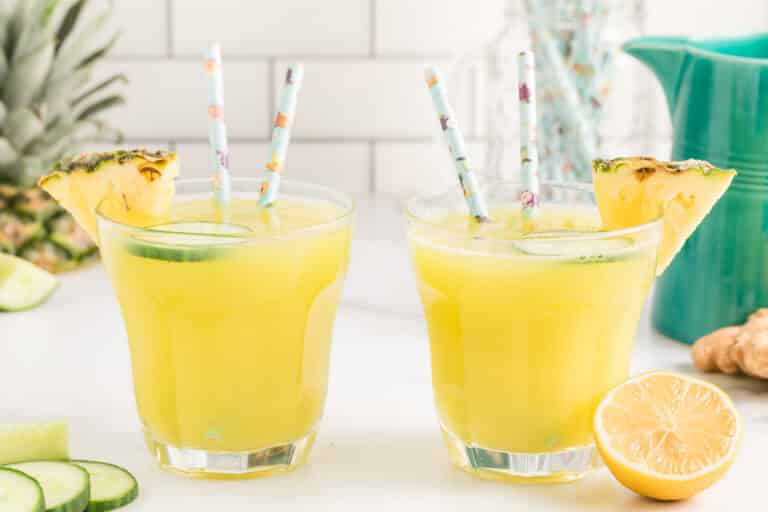
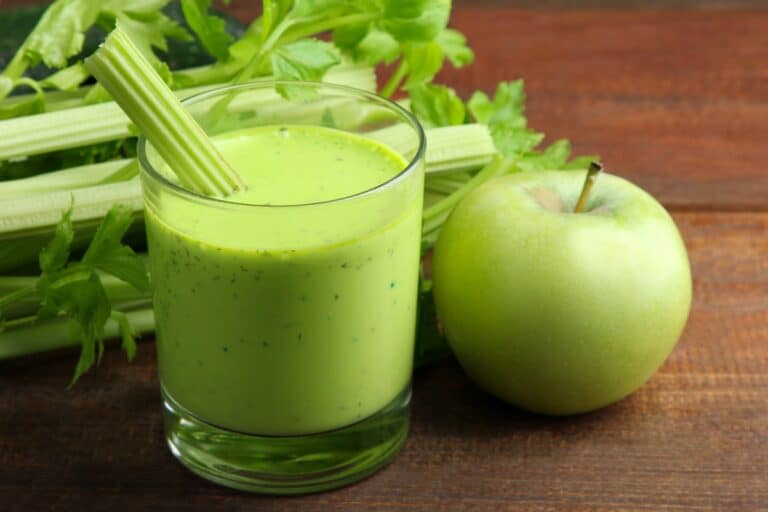
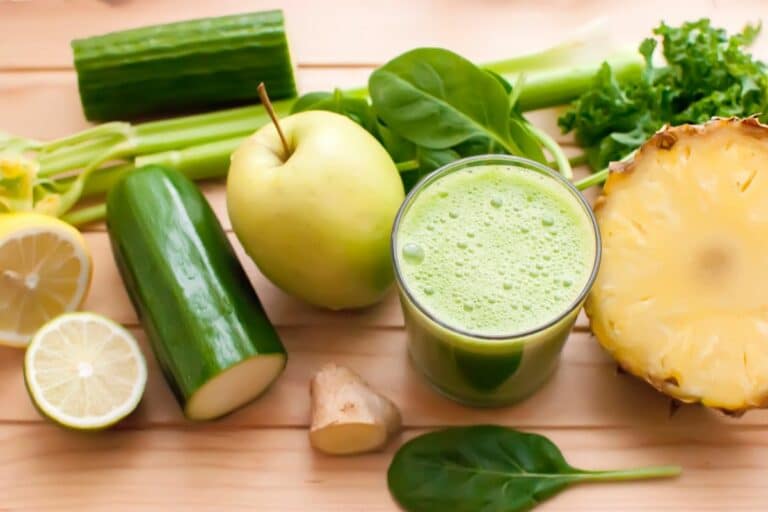
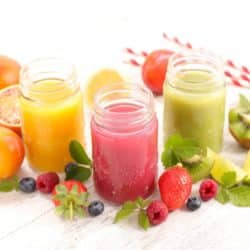
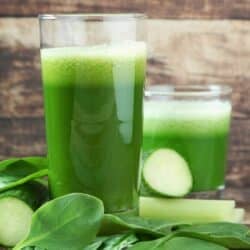
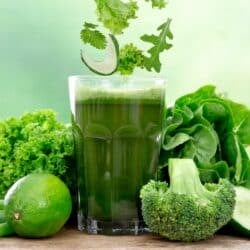
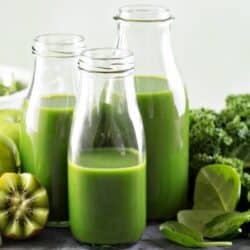





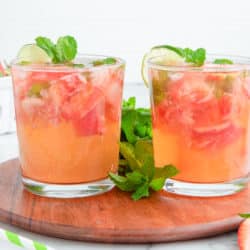








here to make cleanse change in my diet life!